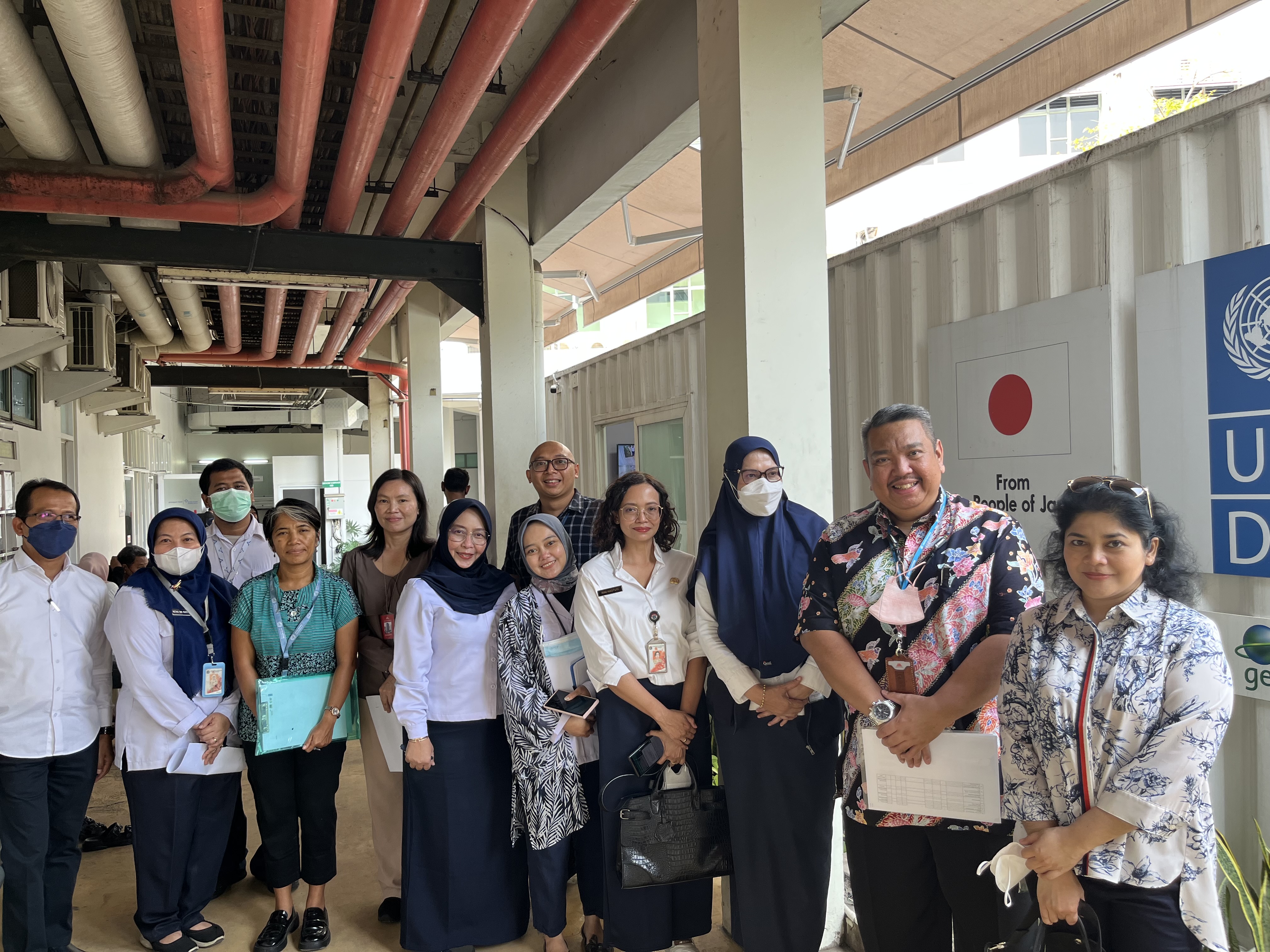Investing in GBV Service, Protecting Women’s Right for Equality
March 12, 2024

Joint inspection for container readiness between UNDP, RSUD Cengkareng and Jakarta provincial government

Container shipment for installation at RSUD Cengkareng, funded by the people of Japan
Advancing gender equality and the empowerment of women is identified as the 6th Signature Solution that UNDP offers as part of integrated responses to development challenges to make a real impact. Under this Solution, UNDP envisages a holistic approach to assist government in developing legal and policy frameworks and build capacities to prevent violence, end impunity, and ensure access to justice and protection, as described in the UNDP corporate Gender Equality Strategy 2022-2025. In the spirit of International Women's Day 2024, UNDP Indonesia continues to amplify the message to #InvestInWomen and accelerate #ProgressThatMatters towards gender equality to meet the 2030 Agenda for Sustainable Development and ensure women’s well-being in all aspects of life.
Gender-based violence is a violation of human rights and the worst form of gender discrimination that has disproportionately affected women and girls, hampering them from enjoying the benefits of development outcomes as well as fully participating in and contributing to development processes. In line with the global trend, Indonesia witnessed a decrease in the figure for GBV incidents, from 1 in 3 in 2016 to 1 in 4 in 2021, based on the latest National Survey on Women’s Life Experience. However, existing evidence suggests that violence against women was exacerbated during the pandemic. While COVID-19 affected the whole population, women experienced a double and increased burden as they had to assume roles in both professional and domestic affairs. Furthermore, Komnas Perempuan/the Commission on Violence Against Women estimated that GBV cases increased by 63% during the pandemic in Indonesia, particularly against women and girls. Women were likely exposed to a higher risk of Gender-based Violence during the pandemic due to its multidimensional impacts such as psychological and economic stress, economic uncertainty and insecurity, and mobility restriction.
To provide a comprehensive service for GBV survivors, the Ministry of Health issued a Ministerial Regulation in 2009 on Management Guidelines for Integrated Service for Women and Children Survivors of Violence including GBV in hospitals/Pusat Pelayanan Terpadu (PPT). The regulation aims to enhance integrated services for women and children’s survivors in hospitals through good service management. The one-stop service center requires collaboration among authorities providing GBV handling services such as the Ministry of Women Empowerment and Child Protection and police institutions. The regulation also stipulated minimum standards of services and facilities to ensure an appropriate and safe setting for GBV survivors.
Gbv handling service container is installed at RSUD Cengkareng, West Jakarta
UNDP is committed to support the works of the Government of Indonesia in strengthening GBV service providers for handling GBV cases, including integrated hospital-based service. This is done through the adoption of good practices from other countries or innovative solutions to accelerate the government efforts. In 2018, an integrated service for GBV victims and survivors, PPT Bunga Tanjung, was piloted at Tarakan Hospital. The facility adopted the integrated service model of the Sunflower Center of South Korea. Following the success of the pilot, UNDP advanced the support by prototyping a “movable integrated service center” in a container with 3i (Integrated, Inclusive, and Independent) principles. The innovative prototype aims to integrate several services provided by different institution under one roof to ensure all rights of GBV victims and survivors are accommodated. The facility was installed next to the emergency room of the Provincial Government’s Regional Hospital of Cengkareng in West Jakarta, given the high prevalence of GBV cases in the region. The container is equipped with an examination room, a waiting room, and a resting room with entertainment facilities and nursing equipment. Security appliances such as security cameras and emergency exits were also installed to ensure the safety and security of GBV victims.
Constructed in 2022, the container is planned to be operational for use in 2024. The creation of movable container is an innovative effort by the health sector, to bring quality service closer to the victims or survivors.
Moving forward, what could we do better?
A recent behavioural study by UNDP reveals that GBV survivors experience significant barriers to seek the services they need, with most of them ending up in silence. Service providers such as public institutions, the private sector, and civil society need to continuously disseminate information and raise the awareness of GBV survivors on the services available for them. At the same time, we need to constantly improve the quality of services through victim-centred approach by different service providers – health, legal, medico-legal, phycological, social, economic, etc. In 2023, there were 254 UPTD PPA (technical unit for the protection of women and children) at district/city level, covering half of the total number of districts/cities in Indonesia. In the upcoming years, it is expected that there will be more facilities available to reach more GBV victims and survivors.
Edited by Enggi Dewanti and Wiryawan Nimpuno

 Locations
Locations


